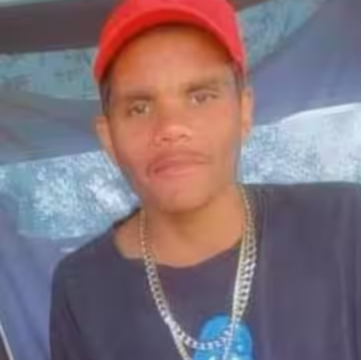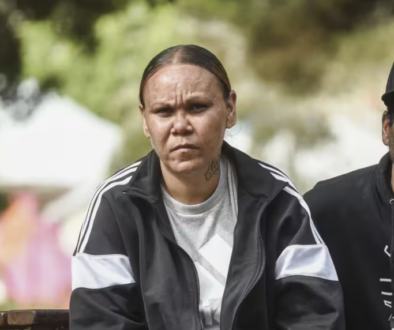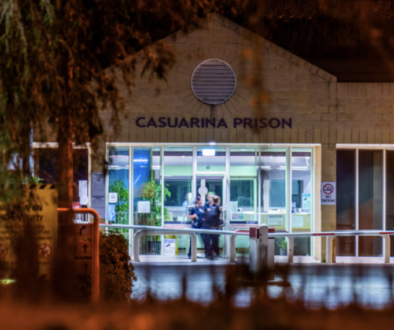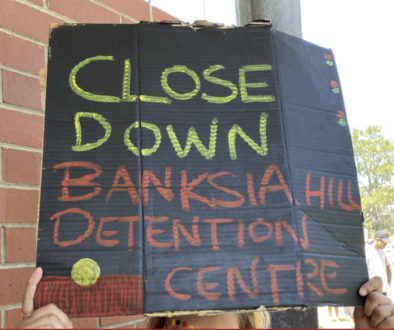Cleveland Dodd threatened self harm eight times on the night he took his own life, inquest reveals
Key points:
- Cleveland Dodd had expressed suicidal thoughts and threats of self-harm on multiple occasions leading up to his death.
- Cleveland’s calls for help and reports from another detainee were delayed due to malfunctioning radios and staff not following procedures.
- An inquest will investigate the events leading to Cleveland’s death, the care he received, and the appropriateness of detaining youths at Unit 18.

On the first day of the inquest into the death of Cleveland Dodd, Counsel Assisting the Coroner Anthony Crocker provided a detailed account of the events leading up to the teenager’s tragic demise at unit 18.
The breakdown of the 16-year-old final moments, presented hour by hour, shed light on his history of self-harm and expression of suicidal thoughts and the chaos involved.
Throughout his childhood, Cleveland exhibited indications of a challenging upbringing and prior encounters with law enforcement. By the age of 12, he had already had encounters with the police.
In his initial remarks, Mr Crocker noted that Cleveland had been subjected to domestic violence, substance abuse, association with antisocial groups, and a lack of proper supervision during his early years.
Mr Crocker provided a detailed account of numerous instances where Cleveland had made threats of self-harm and expressed suicidal ideation over the course of his life.
A neuropsychological evaluation identified Cleveland as having a major depressive disorder, cannabis use disorder, and a potential language impairment.
It was revealed by Mr Crocker that in the lead up to Cleveland’s death he conveyed his distress about the lack of water and the noise coming from other detainees’ cells to the youth custodial officers via the intercom.
It was also mentioned that Cleveland had made threats of self-harm on eight different occasions from 8pm to 1.35am on the night he was discovered unconscious in his cell.
The timeline showed Cleveland was seen on CCTV leaving his cell only twice on October 11, 2023. The first time was for a 20-minute virtual court appearance, and the second time was at 4.40pm for recreation time.
This was two hours after he had inquired why he was not being allowed out and the duration of the recreation period was limited to only 59 minutes.
On top of his frustrations there had been a planned power outage At 11.30pm, all staff at Casuarina Prison units 15 to 18 were instructed to get ready to switch to emergency power due to a scheduled power outage.
Unfortunately, the staff in Unit 18 did not receive this message due to a malfunctioning radio, resulting in a “severe” response.
During the court proceedings, it was revealed Cleveland placed two calls to check on the power situation at 11:39pm, followed by complaining of a headache and asking for a nurse just after midnight.
At some point during the evening Cleveland had covered his CCTV camera with wet tissue, which prevented officers from seeing him, it would remain that way until youth custodial officers attempted to resuscitate him.
At 1.50am, the detainee in the cell next to Cleveland called a youth custodial officer through his intercom. He told custodial officer Daniel Torrijos: “Cleveland is hanging in his cell’.
Mr Torrijos response was delayed by their failure to carry a radio.
On CCTV Mr Torrijos was captured as he approached senior custodial officer Kyle Mead-Hunter to inform him of the situation. Mr Mead-Hunter, who had been reclining in a darkened office, promptly stood up, put on his shoes, and buttoned his shirt.
Following this incident, a code red was immediately declared from the control room, and emergency services were contacted at 1.55am. The prison staff initiated CPR while waiting for the paramedics to arrive.
At 2.15am, just nine minutes after their arrival at the prison, the paramedics assessed Cleveland’s condition. They determined that he was experiencing cardiac arrest and promptly removed him from the cell for further medical attention.
Cleveland died in hospital in October 2023 following self-inflicted injuries in his cell at Unit 18, a juvenile facility known for controversy located within the high-security Casuarina Prison for adults.
It was revealed that he sustained a brain injury as a result of oxygen deprivation, and his situation was getting worse.
The inquiry, scheduled to last for 21 days spread out over the upcoming four months, will closely examine the events leading up to Cleveland’s self-harm incident, the standard of care he received, and the suitability of allowing operations at Unit 18 to proceed.
Contact us
Please provide a brief description of your claim.



